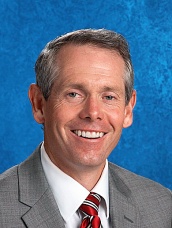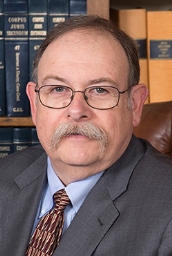Guest column
by Justin Henry, Alan L. Rupe and John S. Robb



Kansans deserve better.
In response to the Supreme Court’s decision in Gannon V, legislative leaders in both public and private meetings have been warning Kansans that complying with the decision would force other areas of the Kansas budget to suffer. This rhetoric is being spread in an attempt to scare Kansans, and to force support for an ill-advised attempt to alter the education article in the Kansas Constitution. This strategy is not new; legislative leaders have used this strategy before to try to avoid their constitutional duty. Kansans did not fall for it in 1993, 1995, 1997, 2004, 2005, 2006, 2007, 2009, 2011, 2013, and 2016. Kansans should not fall for it in 2018 either.
The legislature is charged with funding the government. All of it. But funding state government is not a zero-sum game. It is not “either fund this service or fund that service.” The legislative duty is to fund all necessary state services adequately. This includes hospitals, social services, highways, the courts, the corrections system, higher education, health and environment and … of course, public schools.
Attempting to pit these groups against each other in a scramble for the dollar is disingenuous. Amending the constitution to hurt public schools goes against values that Kansans have held dear for 160 years. Bending these values to meet current ideology is simply inappropriate… as it has been for the past 25 years. Declaring that no taxes shall be considered is an abdication of the legislature’s constitutional responsibility. Painting a picture that three prisons must close if we are to fund the schools is outrageous fear-mongering. Kansans demand better. All services, including public schools, need adequate funding.
Schools for Fair Funding is an association of 40 school districts that educate approximately 30 percent of all Kansas school children. No SFFF official is advocating for a reduction in state services designed to meet the needs of Kansas families, and no member of this group desires any state service to suffer. SFFF desires a strong safety net of services for Kansas families. When Kansas children wake up hungry, experience medical issues, or come from a foster care system that is broken, school officials see the harm caused first-hand. Students have to be ready to learn in order to achieve success. The Gannon case is about giving all children the opportunity to receive an education that meets constitutional standards, a task that would be even more difficult without a sound safety net of services for Kansas families.
Many legislators express an interest in ending the cycle of litigation, and yet they fail to acknowledge the Legislature’s historic role in the cycle. But for legislative foot dragging and intentional non-compliance, there would be no cycle. The Gannon case was filed in 2010, following the 2008-09 dramatic cuts to K- 12 education. The initial cuts included reneging on the third year of the school finance plan that settled the Montoy case in 2006. Since Gannon was filed, the state has lost at the trial court level twice, and at the Supreme Court five times. The only time in the past eight years the state has been successful in the Gannon case was in June of 2016, when the Legislature worked directly with the plaintiffs to fix the equity issues, and the Supreme Court agreed that the changes made complied with constitutional equity requirements. Sadly, in the very next legislative session, the Legislature then adopted new legislation that destroyed the equity of the previous system and introduced new inequitable provisions.
This, of course, resulted in another defeat before the Supreme Court, in Gannon V. None of this was a surprise to informed observers. It was all very predictable.
Moving forward, the best way for the Legislature to end the cycle of litigation is to quit passing unconstitutional legislation and to focus on funding our schools in compliance with Gannon V. Stop trying to “game” the court. It has not worked thus far and won’t work now. No one is more tired of litigation than school officials.
Currently, over 25 percent of Kansas school children are under-performing on state assessments. The state of Kansas has produced studies that prove the current levels of funding will not provide all children with a constitutional level of education. Again, these are the state’s own studies, not something concocted by plaintiffs or the schools. The Kansas Supreme Court has been extremely patient, but we believe the Gannon V court is telling the Legislature and Governor that this is their last chance to “get it right.” We stand ready to work with public policy leaders and advocates to make the transition to compliance as smoothly as possible. Kansans should expect nothing less.
Justin Henry
Superintendent USD No. 265
President, Schools For Fair Funding
Alan L. Rupe
John S. Robb
Counsel for Schools For Fair Funding
